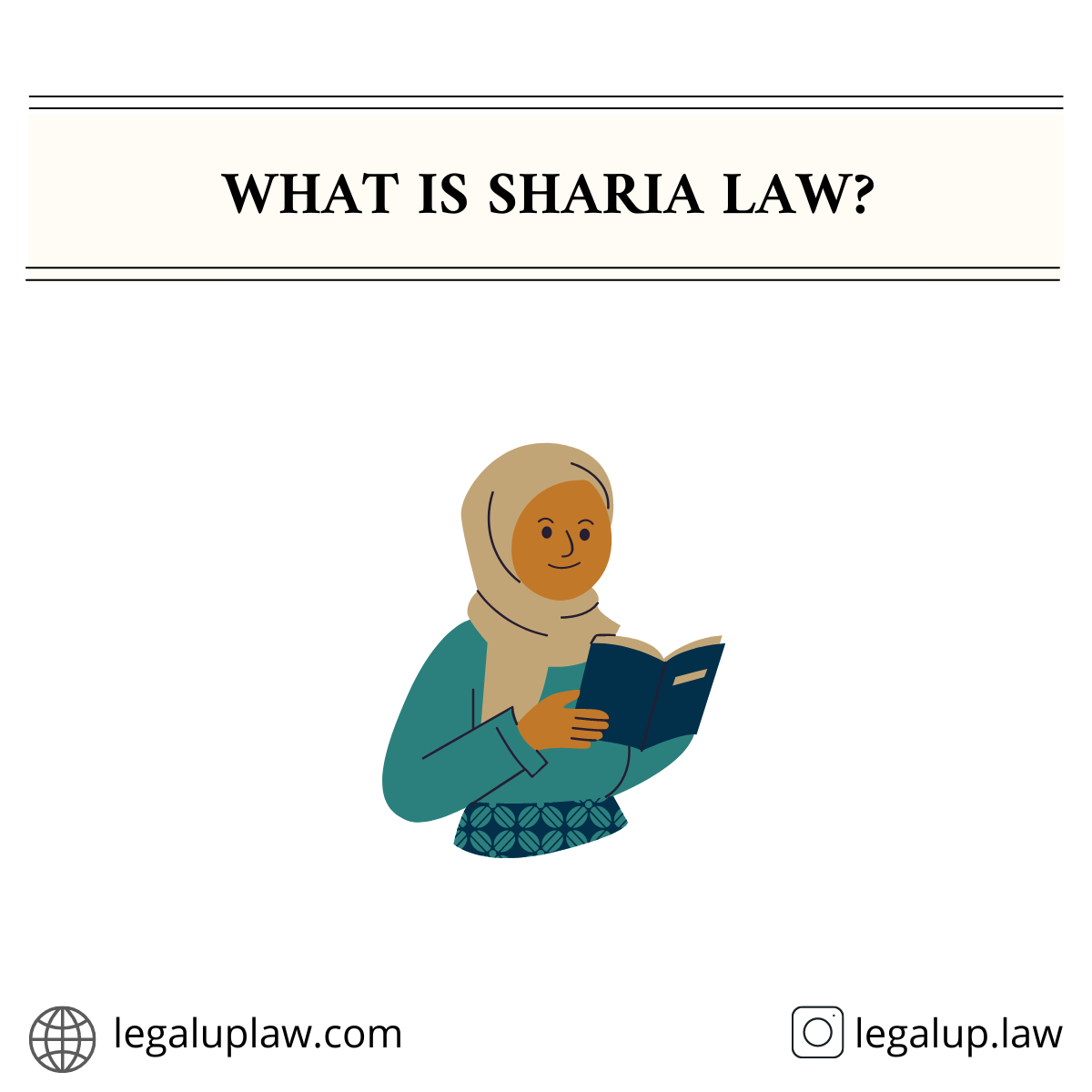Sharia or Sharīʿah is an Arabic word that means “Straight Way” or “Right Way“.
Sharia is an Islamic Law that was made using the Quran, the holy book of Muslims and by the practices and lifestyle of Prophet Muhammad (The first and the last messenger of God). Sharia Law is interpreted as the command of God for the Muslim community, which comprises the system of rules and regulations that a Muslim person has to follow during his lifetime to live a decent and proper life.
It is expected for every Muslim person to live his life according to Sharia Law, and in case of any problem during his life, he/she can ask for guide and help from the Jurist of Sharia Law, so that it should make sure that the person is acting with the limits of the Islami laws. These Jurist makes decisions and give judgment on related issues, which is known as Fatwa.
Table of Contents
What are the rules and punishment under Sharia Law?

The Sharia Law, not just only defines the Rituals such as daily prayers (ṣalāt), almsgiving (zakāt), fasting (ṣawm), and pilgrimage (hajj). But also defines the Punishments for the wrongs committed by a Muslim person in contradiction of the specified rules.
The punishments for the wrongs are divided into 2 categories-
- Hudud ( also know as Borders, Boundaries or Limit in arabic language)-
This includes the offence of theft, murder, and adultery or rape. If any Muslim person commits the wrong of theft his hands would be cut as a way of punishment. If he/she kills somebody, his punishment would be the death penalty (hang with a rope till death). If anyone commits adultery or rape he/she will also be liable for death but they would be penalized by throwing stones till death.
2. Tazir
In Tazir, the penalities for the wrongs done are given by the legal Scholars of Sharia law and the penalty will depend on the interpretation of the crime and the Scholar.
Note– The punishments specified in the above 2 categories are applied differently in different parts of the countries. The reason behind this is that in Islam the concept of “School of Thought” prevails.
What are the Islamic School of Law?
In Islam, there are mainly 2 schools of law, Sunni and Shia. Under Sunni school, there are 4 sub-schools namely Hanafi, Shafi’i, Maliki, and Hanbali and their authors are Ibam Abu Hanifa an-Numan, Muhammad ibn Idris ash-Shafi, Malik ibn Anas and Ahmad ibn Hanbal respectively.
Under Shia law, schools of Shia Jafari are provided whose scholar is Ja’far al-Sadiq.
Since the jurists of each school are different and these jurists have ideological differences the countries have their schools of thought according to their choice and it does not only depends on the ideology of jurist, but every person also has their interpretation of Sharia Law.
In Islamic countries, Sharia law is the sole law applicable in every matter. Saudi Arab, Yaman, and Kauit are examples of such countries. In various other countries their law is considered as the secular law, but for Muslim Sharia law is applicable and a different Sharia court is made for their matters.
In Nigeria and Kenya different Sharia courts are made for Muslims whereas in Tanzania the courts are the same, but for Muslims, Sharia law is applied in the same court.
In India, Muslim Personal Law is applicable to Sharia Law, but it is only applicable on civil matters, for criminal cases, secular laws like IPC and CRPC are applied.
What is the status of women in Sharia law?

The present status of women in the Muslim religion is not very good, they are barred from societal works and also from education. But from the Quran and from the practices of Muhammad’s it is being interpreted that women have also been given equal right to work in society and should also have the right to learning. Muhammad’s wife, Khadijah was a businesswoman.
Sharia law also defines the same status of women in society. It also states that a woman is entitled to half the amount of her husband or of an elder brother. Under Sharia law and in Quran it is specified that a woman should not show her beauty to any man who is not her family member, and for the same, she needs to cover her face and hair simply to hide her beauty. This practice is known as Hijab.
It is also been mentioned that a woman has equal rights in choosing her husband for marriage and she can remarry other men only if she gets divorced from the 1st husband or if he is dead. But it makes us realize one discrimination against her that a Muslim man can marry 4 women at a single time which means Polygamy is allowed in Muslims but Polyandry is not allowed.
Conclusion
Even if the line between sharia and political authority was not always obvious and changed from one state to the next in pre-modern nations, sharia tended to be separate from political power. In modern post-colonial states, on the other hand, sharia is regarded as a component of statute law, even if its reach is typically limited to personal status concerns in some countries (such as marriage, inheritance, etc.). The modern notion of law is built on codification and control, making it exclusively a governmental instrument. Sharia’s politicisation is a relatively new phenomenon.




2 Comments